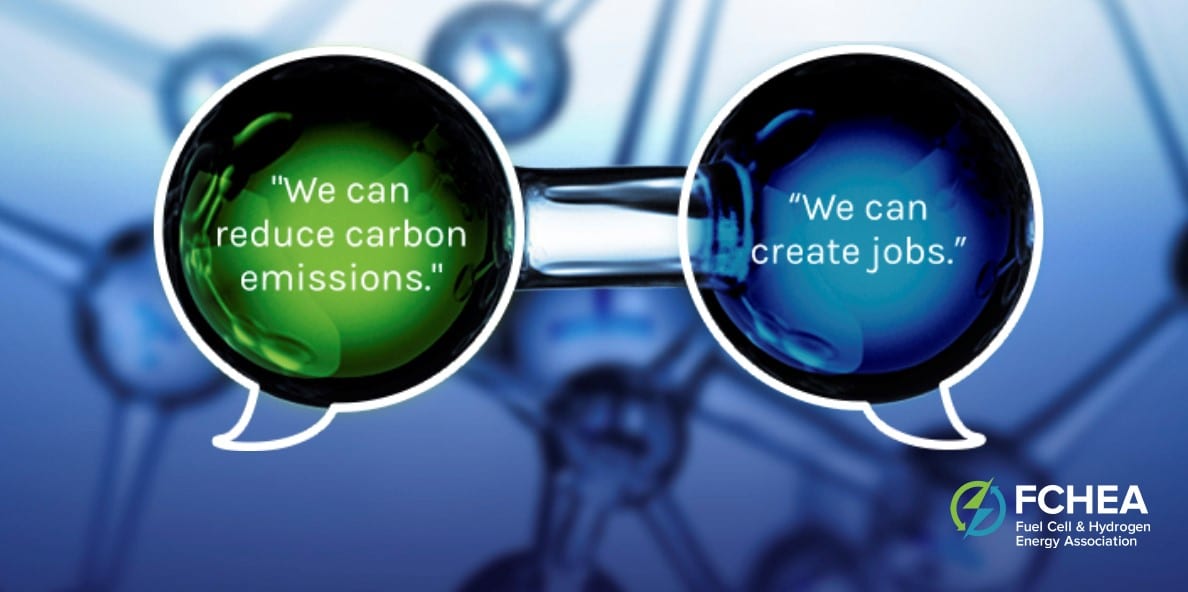The debate over transitioning to cleaner forms of energy always seems to default to a false idea that reducing emissions will result in lost jobs. The Fuel Cell and Hydrogen Energy Association (FCHEA) and its members have always rejected this strawman argument, knowing that investing in fuel cell and hydrogen technologies not only strengthens America’s energy security, but also creates new economic and employment opportunities that drives the country forward to stay at the forefront of innovation in this sector.
As countries around the world develop recovery plans to rebuild their economies after the impact of the COVID-19 pandemic, investing in clean energy infrastructure and hydrogen is becoming a recurring theme. The Biden Administration is aligning with these global trends, as President Biden, Secretary of Energy Jennifer Granholm, and Climate Envoy John Kerry have all been speaking out about the great potential hydrogen fuel cells and other clean energy technologies have to create jobs and ensure we have sustainable, reliable, efficient, and domestically produced energy.
Investing in fuel cell and hydrogen technologies creates new economic and employment opportunities.
New Hydrogen Campaign to Help Educate Policy Makers
As Congress works with the administration to develop legislation focused on infrastructure, climate change, and pandemic recovery, it is critical that hydrogen fuel cells are part of the mix. To help educate policymakers and key stakeholders in Washington, DC, FCHEA has launched a new hydrogen campaign, highlighting the benefits this technology brings to not only stimulate the economy and create jobs, but also to reduce emissions and support the administration’s climate goals. The catchy and relevant tag line, “Hydrogen is the energy solution that doesn’t fuel the divide,” encompasses the sentiment that we can and need to join together in a united front to build America’s clean energy future.
The multi-faceted campaign includes print and digital ads, among other outreach efforts, to share the message that a thriving hydrogen fuel cell economy will generate billions in revenue, revitalize American manufacturing and supply chain networks, and create millions of high-quality jobs for all skill levels.
The Roadmap to a U.S. Hydrogen Economy Lays Groundwork
The education effort is based on the findings of the Roadmap to a U.S. Hydrogen Economy, a McKinsey & Co. report that details how with the right policy and regulatory support, the rapid scale-up of hydrogen production could meet 14% of the nation’s energy demand while reducing carbon emissions by 16% and NOx emissions by 36%, all while creating $750 billion in revenue and supporting 3.4 million jobs by 2050.
While that seems very far away, to reach those numbers, it is critical to lay the groundwork and foundation now. And as already proven by the tens of thousands of ultra-low and zero-emission fuel cell systems powering cars, buses, trucks, buildings, communications networks, and more across the U.S., reducing carbon emissions doesn’t have to be a hard choice to make.



